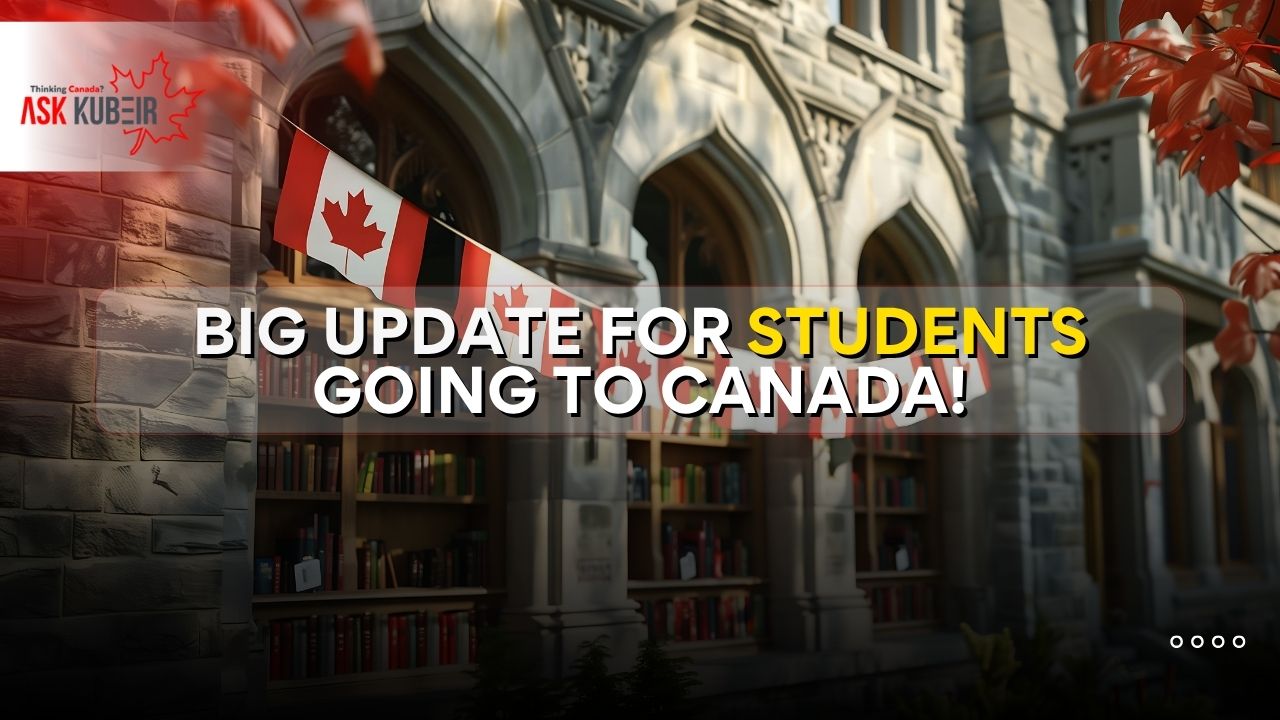
Related Post







Study In Canada: An Operational Checklist
Canada is one of the most popular destinations for higher education for many prospective international students. As International students there could be various factors that you could not be aware of, so it is very important to learn everything about Student Life in Canada before you commit all those years and finances of your life in Canada.
Studying in Canada is Affordable; compared to a lot of other competitive countries. Canada’s undergraduate tuition fees fall between $12,000 – $18,000 per year. Housing or Apartments can range from $400 – $1,500 a month depending on where you are living. Cost of Living is around the same as competitive countries such as the USA, UK & Australia.
Canada and Languages; English and French are both the official Languages in Canada. If you’re a prospective international student and are not a French speaker, it would be advisable to learn French as the language could be very beneficial and will give you an edge over other applicants. Majority of French Speakers in Canada reside in the province of Quebec, and if you’re planning on studying there, you will be required to learn French in addition to English language skills if required.
Financial Planning & Scholarships; even though Canada is an affordable option for quality education in comparison to other countries, it can still cause a financial burden on many people. It is advisable to understand that Canada offers many diploma and certificate programs (1-3 year programs) that are lucrative and cost effective. The tuition for a year for these courses, could be the semester tuition of a 4 year program. It also makes you eligible for a work permit and further adds to your profile for a Permanent Resident status.
There are also scholarships available for foreign students, and some of the universities/colleges that offer these scholarships are:
University of Toronto: Lester B. Pearson Scholarship for international students who demonstrate exceptional academic achievement and creativity and who are recognized as leaders within their school. The scholarship will cover tuition, books, incidental fees, and full residence support for four years.
Humber College: International Entrance Scholarships offers renewable full and partial tuition scholarships to new international students beginning classes in September and January of each year.
York University: International students who have an excellent academic record and admitted to York University are eligible for scholarships worth $60,000 – $100,000 for a four-year degree program.
University of British Columbia: UBC recognizes academic achievement of outstanding students from around the world by providing more than $10 million CAD annually to awards, scholarships and financial assistance towards international undergraduate students.
The Weather in Canada, some of you might be surprised that I’m mentioning this as an important point here but if you’re planning on studying in Canada you should be prepared to live in the “COLD”. You will need to be prepared to battle the cold and also bear the daily stressors that would come with the cold and snow.
Choosing your University; there are many factors out there that influence a person’s choice, and everybody wants to get into the best universities. If you have the GPA, the Letter of Recommendations, Finances all sorted out, you should definitely apply to the best. But you should carefully consider your university based on:
The Reputation and Accreditation of the University
The quality of education for the desired course or program
The cost of your program & Scholarships/ Financial Aid
Your past educational scores
Student life
Location and weather
Job opportunities in the province or city.
Getting a Canada Study Visa; A study permit is not needed if you are enrolled in a program for 6 months or less (short duration courses). To study in Canada for longer than 6 months, you will require a Canadian Study permit. This permit acts as a temporary status for the duration of your stay.
However, you are required to provide, regardless of the course duration:
Satisfy Health Requirements/ Immigration Medical Exam
Ability to pay tuition fees, living expenses and be able to return to the country of origin on completion.
Acceptance from a university or educational institution in Canada.
In some cases you are also required to demonstrate that you have purchased an adequate study abroad travel insurance. Which you must buy before you travel as a necessary precaution.
Being able to Work while studying; International students who are studying can work on or off campus as long as they have a valid study permit. All full time students can work part-time on or off campus for upto 20 hours per week during semesters and full time during semester breaks.
Some courses require you not to work for more than 10 hours, depending on the course time and if you are a grant student; which is where you have been granted funding to study in Canada, you may face time restrictions.
Acceptance rate in Canada; If you have heard that Canada’s acceptance rate is high, it’s true. It’s pretty easy to get acceptance to Canadian Universities while maintaining a huge variety of course options and easy entry requirements. However most medicine and law programs require Canadian undergraduate study experience in Canada, excellent English skills and more holistic extra curricular qualities.
These are some of the important points to check off your list before you begin your application. Hopefully this cleared out some doubts that you may have had.
